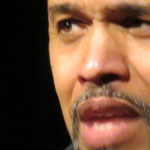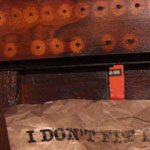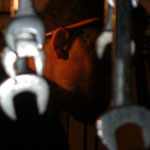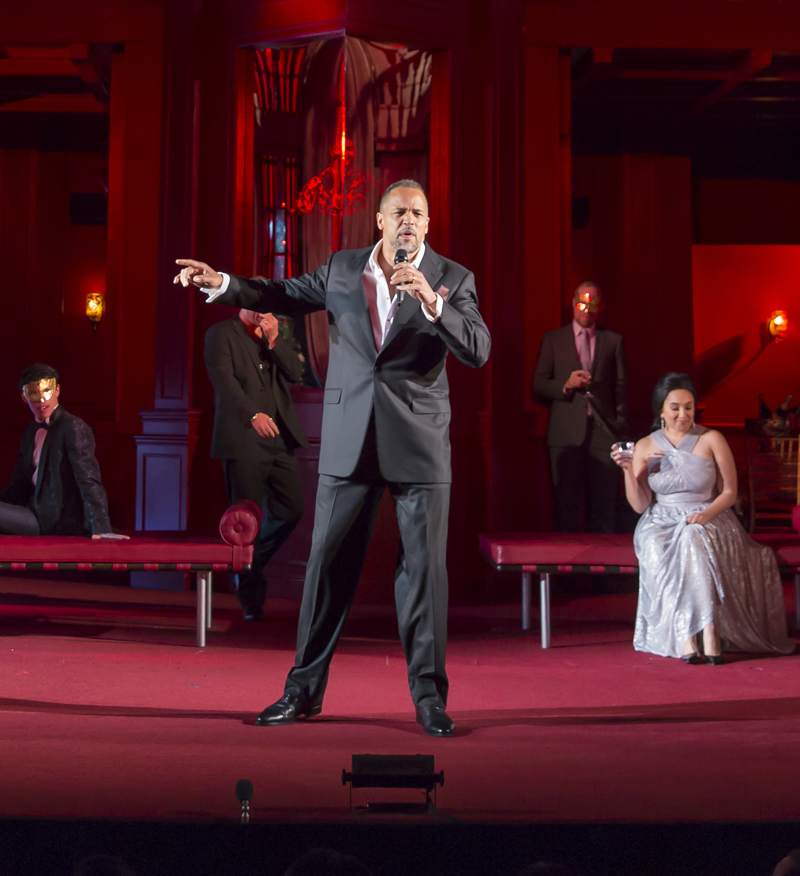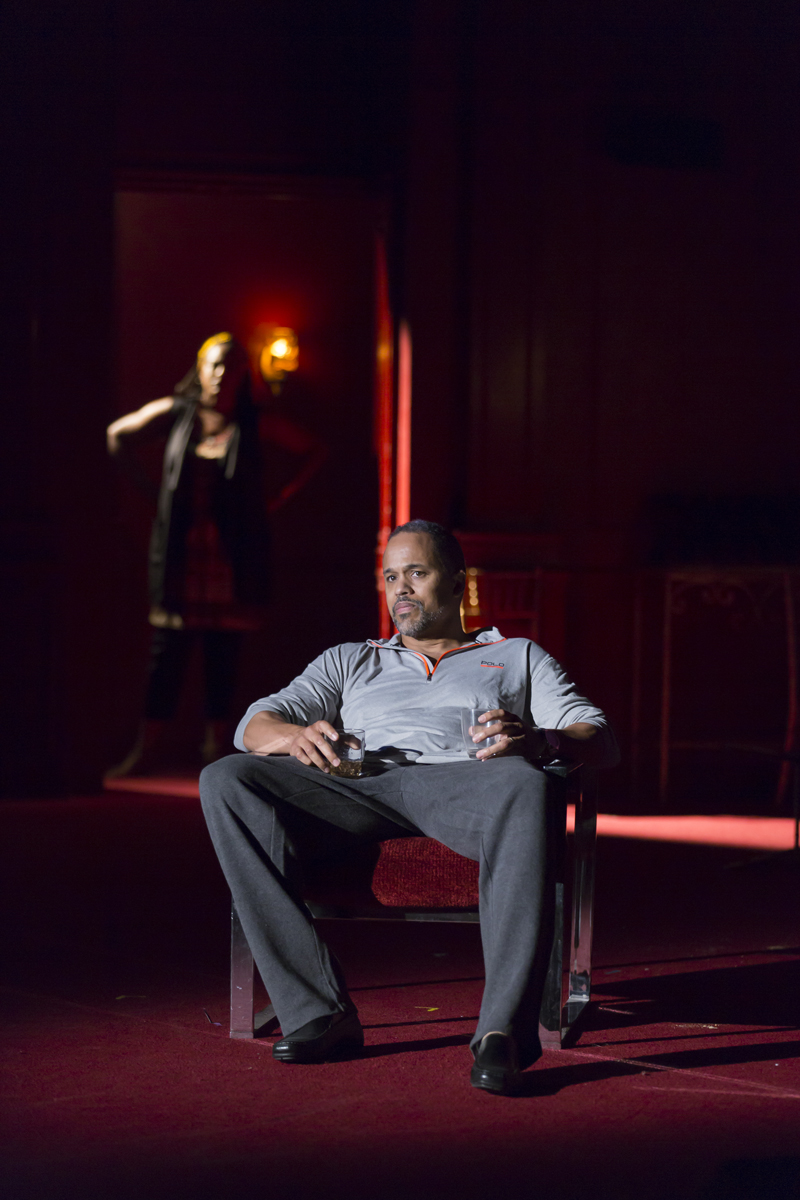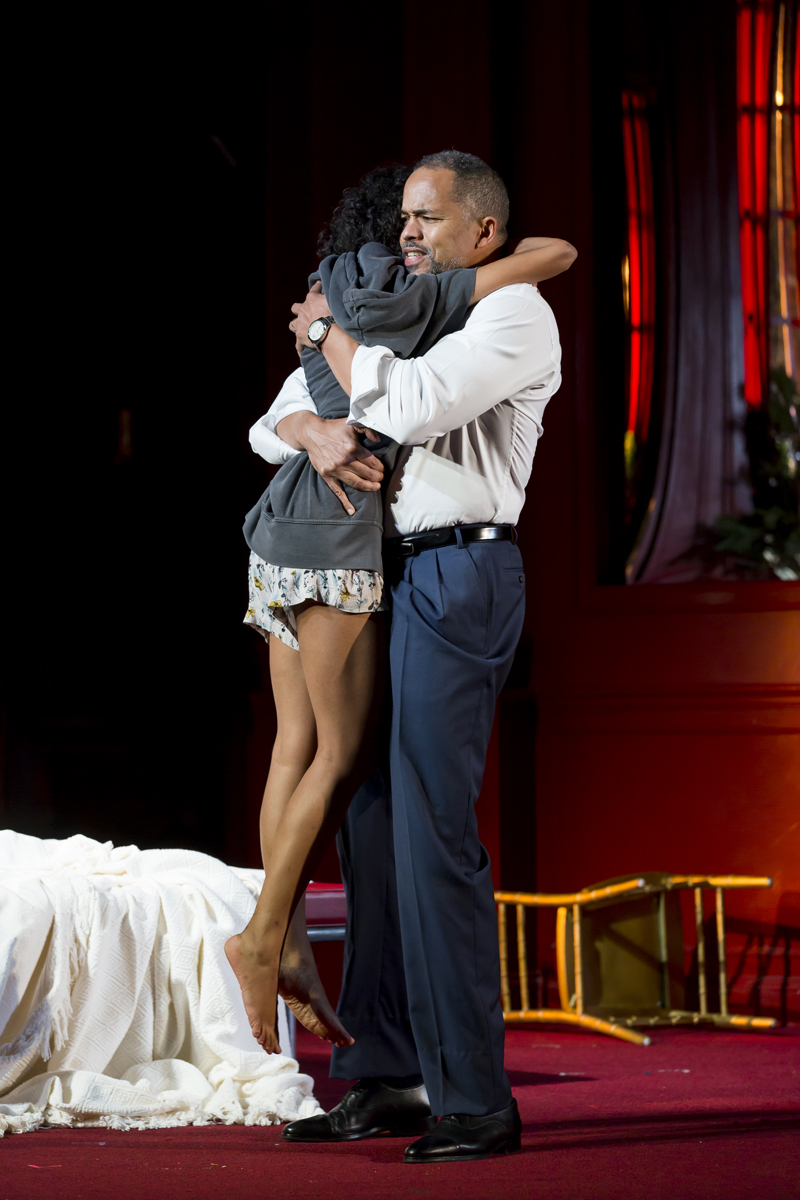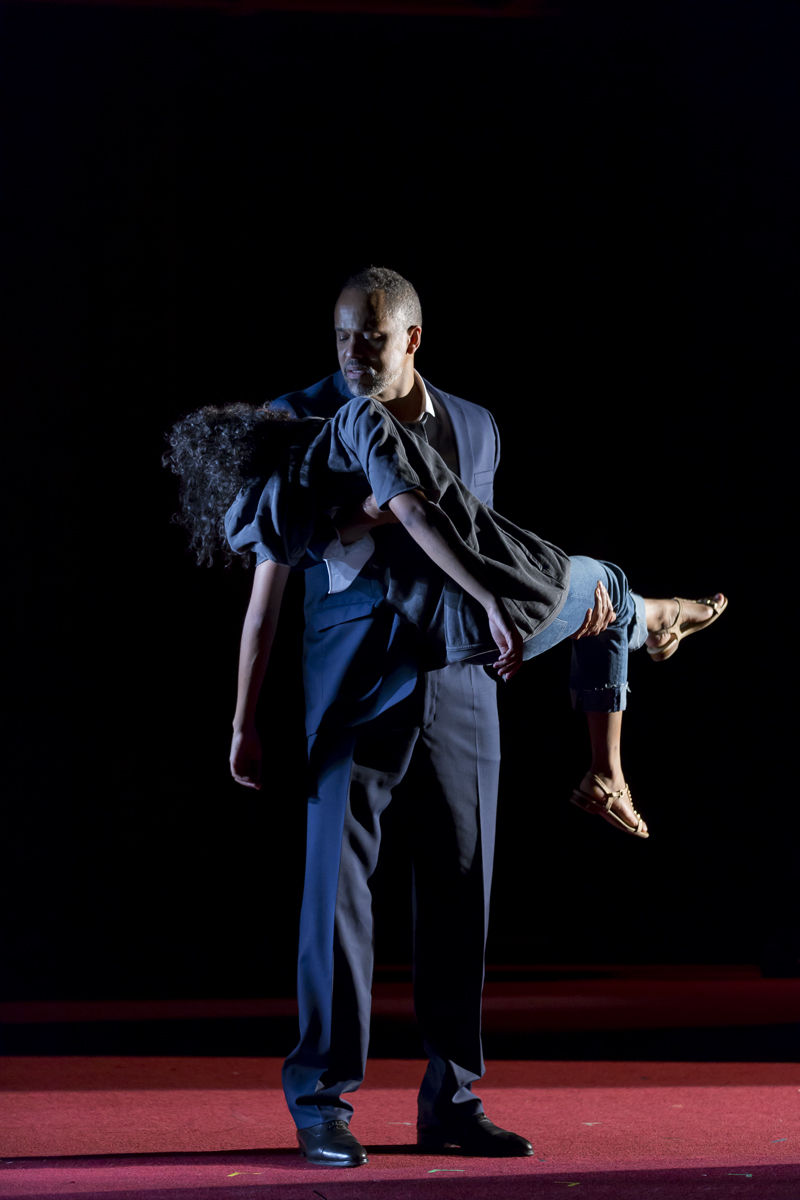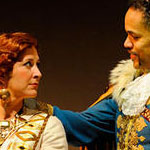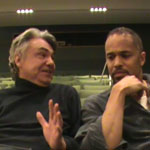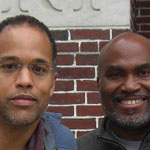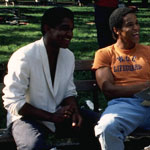
This was a talented ensemble of seasoned professionals, with a young company of eager, intelligent and highly focused students at Desales University. The director, who was also the producing artistic director of the theatre, Patrick Mulcahy, was/is a seasoned professional and former actor who knew his Shakespeare. Ya gotta know your Shakespeare, y’all! He told a tight, intense, moving story with simple staging, costumes, and sets.
It helps, I think, when directing good actors, to have been one yourself. Too many directors, I find, have studied telling actors what to do without any real understanding of why and how actors do.
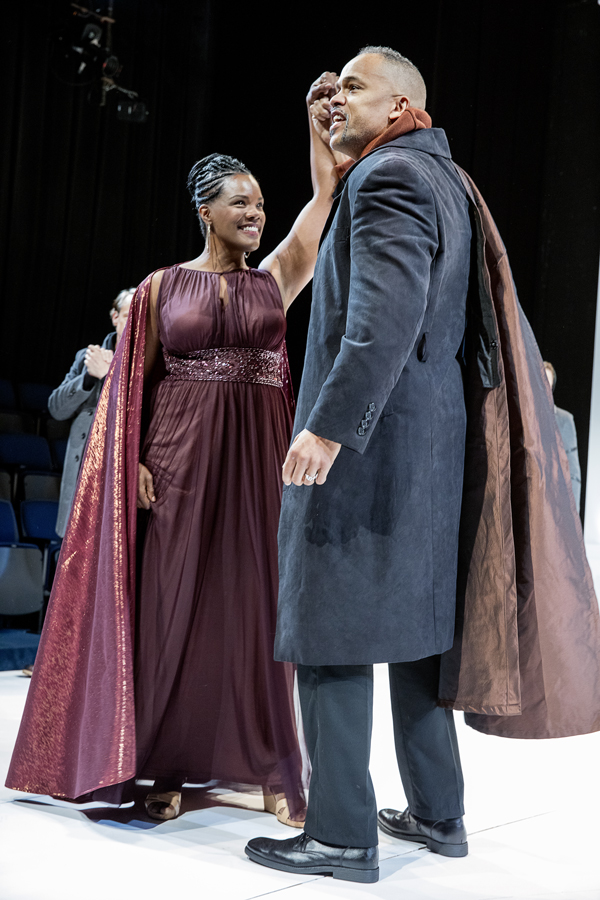
Roz Coleman as Calphurnia
As the artistic director of a mid-tier Shakespeare festival with limited funds, it also pays to be deft at the husbandry of resources. I’ve always maintained that good Shakespeare can be done on a bare stage in jeans and t-shirts. But that probably doesn’t work quite so well if you are trying to sell it to the American masses, who are much better at seeing than they are at listening… Mr. Mulcahy was able to rally the requisite team of creatives to paint a compelling picture and tell a believable story without the benefit of uncountable riches, and I imagine he was able to do that as a manifestation of his extensive experience. Of course, experience doesn’t always guarantee any such result. Not all regional theatre experiences can I call successes, and some that are would be better termed “happy accidents.” But I think, in this case, that clear intention and an ability to work with and integrate all creative elements bolstered by a life already lived in the theatre were to be given the credit.
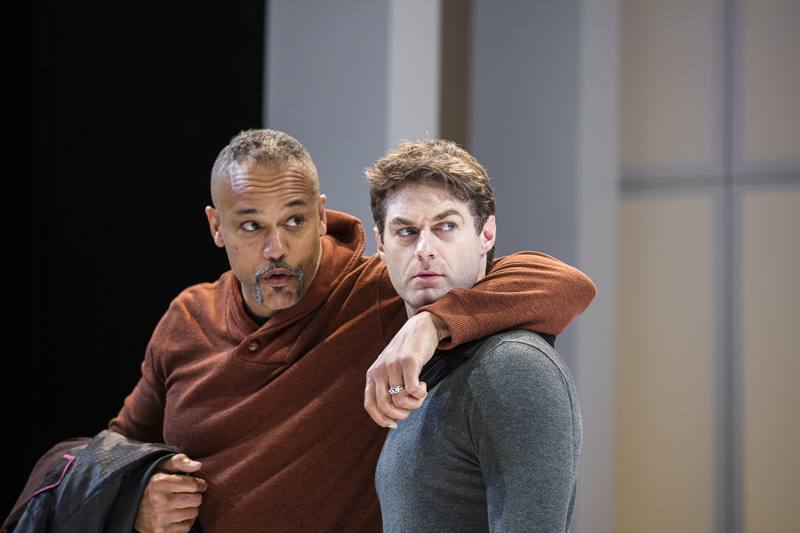
Spencer Plachy as Mark Antony
As for the play… I haven’t seen many Caesars who didn’t stalk about the first half of this play declaiming self-aggrandizing platitudes, and making themselves so damned annoying that nobody ever really gave a shit when they got knifed to death in the assassination scene. That’s sort of how Shakespeare wrote him, and he can be forgiven for the parameters of his form that sometimes left characters to stand as representations of a thing more than the authentic human incarnation of that thing with all its nuance and complexity. People aren’t simple. The way I see it, if we are telling stories about people, then no one in the story can be left as an unexplained idea, least of all the title character, or else the story isn’t ever really told… I didn’t want to be that guy. Patrick Mulcahy and I both thought it much more important to the play to make it rather ambiguous whether the issue was ever really Caesar’s conceit and ambition, or the egos and jealousies of his assassins. He had to behave in such ways as made people think about who he might actually be as a human being, not just what he represented. When you begin to recognize the levels in a man, you can begin, perhaps, to empathize. I wanted the audience to like him enough to mourn him when he died. I think we did that.
Kathy Lauer-William wrote in The Morning Call: “Keith Hamilton Cobb’s Julius Caesar is something of an enigma. He is certainly charismatic but is he a danger? There are some hints of arrogance but it’s never clear if he would truly be a threat to Rome.”
Paul Willistein wrote in The Bethlehem Press: “Keith Hamilton Cobb, an imposing figure, strides the stage like a colossus (“This man has become a God,” Cassius marvels-warns) and yet he’s likable, humble and the least wrath-filled God this side of the universe”
And Mark Cofta wrote in Broad Street Review: “Keith Hamilton Cobb makes an appropriately enigmatic conqueror. Tall and dignified, with President Obama-style hair tinged with gray, he doesn’t seem “a man of such a feeble temper” as Cassius (Greg Wood, compelling as always) describes, and has a majestic charm that’s easy to like.”
I think my director and I found old Julius a little justice.
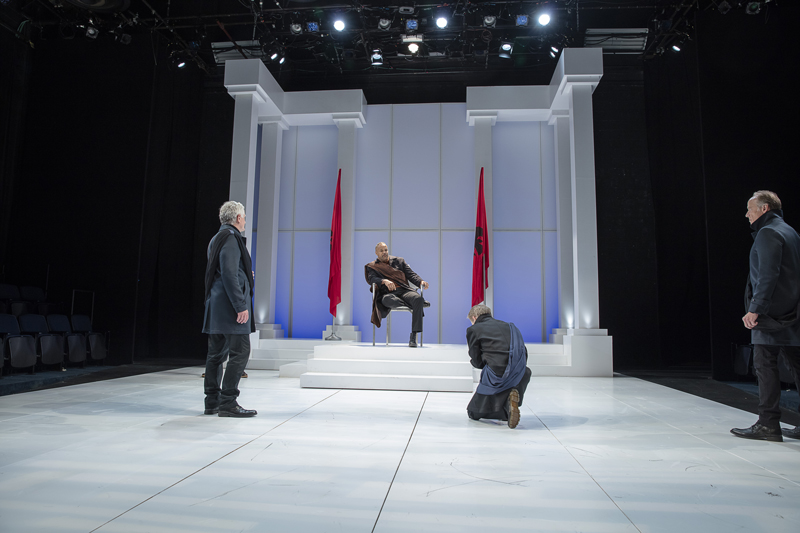
from left: Henry Woronicz as Brutus, Steven Dennis as Metellus Cimber, Greg Wood as Cassius


